-
The scientific story behind the timeline of our Universe
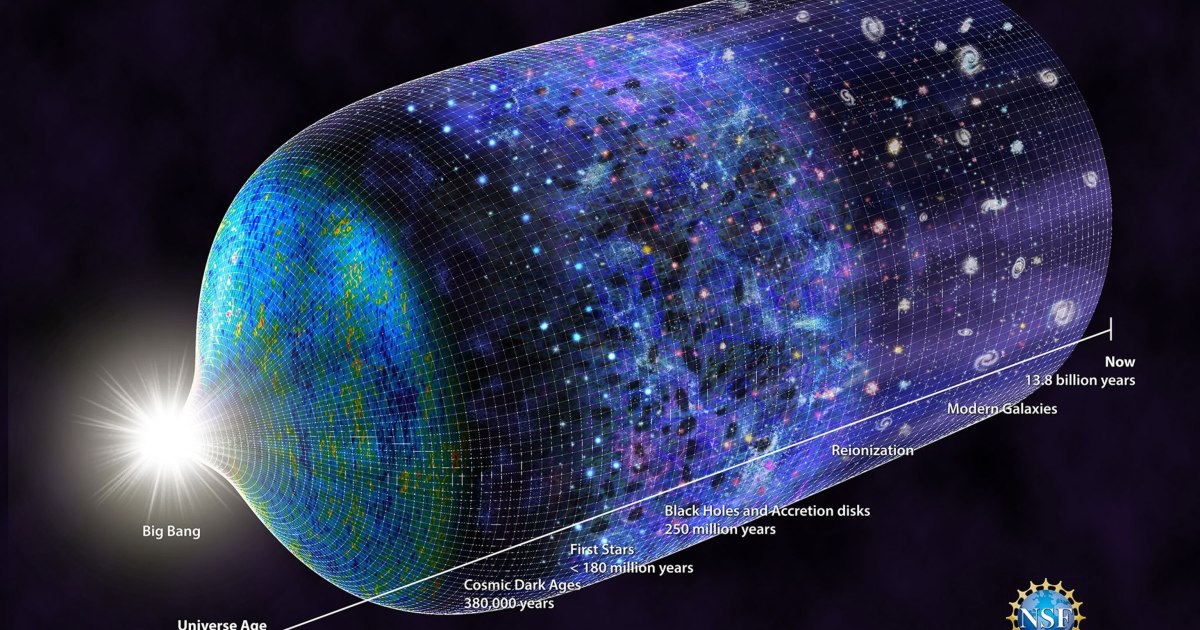 Today, it’s now 13.8 billion years since the Big Bang occurred. Our observable Universe extends for 46.1 billion light-years in all directions, and is made of:
Today, it’s now 13.8 billion years since the Big Bang occurred. Our observable Universe extends for 46.1 billion light-years in all directions, and is made of:
with no hint of other components like spatial curvature, cosmic strings, domain walls, or any other weird stuff we can imagine.
Continued here -
Hack to the future: How to conquer your "projection bias"
 Evelyn went car shopping on a sunny summer day and drove off the lot in a new convertible. Sure, the payments were more than she had budgeted for, but the condition was mint, and it was nice to feel the wind in her hair. Thing is, Evelyn lives in Seattle, and these days, she’s not even sure the soft top still retracts.
Evelyn went car shopping on a sunny summer day and drove off the lot in a new convertible. Sure, the payments were more than she had budgeted for, but the condition was mint, and it was nice to feel the wind in her hair. Thing is, Evelyn lives in Seattle, and these days, she’s not even sure the soft top still retracts.
Then there’s Nathan. Every month, he promises himself he’ll eat better, so he stocks up on salad at the grocery store while allowing himself just one bag of pretzels (for the odd cheat day). One week later, he’s throwing away an empty pretzel bag alongside a pound of wilted greens.
Continued here -
Alien Earths: How to find habitable worlds
 This week, I have the pleasure of sharing with you my Q&A with Lisa Kaltenegger about her new book, Alien Earths: The New Science of Planet Hunting in the Cosmos. Lisa is a world-renowned astrobiologist and the Director of the Carl Sagan Institute at Cornell University. Earlier this year, we published a joint paper with Sara Vannah proposing a new strategy for identifying planets that share similar characteristics with Earth at different times across its evolution. Life writes its presence on the atmospheres of planets, and the search for living worlds is in reality a search for the “biosignatures” that we associate with life, at least life as we know it. Apart from being an outstanding scientist, Lisa is one of the most engaging lecturers I know, and her infectious enthusiasm is ever present in her book, a must-read.
This week, I have the pleasure of sharing with you my Q&A with Lisa Kaltenegger about her new book, Alien Earths: The New Science of Planet Hunting in the Cosmos. Lisa is a world-renowned astrobiologist and the Director of the Carl Sagan Institute at Cornell University. Earlier this year, we published a joint paper with Sara Vannah proposing a new strategy for identifying planets that share similar characteristics with Earth at different times across its evolution. Life writes its presence on the atmospheres of planets, and the search for living worlds is in reality a search for the “biosignatures” that we associate with life, at least life as we know it. Apart from being an outstanding scientist, Lisa is one of the most engaging lecturers I know, and her infectious enthusiasm is ever present in her book, a must-read.
We live in an incredible epoch of exploration. We are discovering not merely new continents, like the explorers of old, but whole new worlds circling other stars. Since the first extrasolar planet was discovered in 1995, astronomers have found more than five thousand others in our cosmic neighborhood. Astonishingly, that means about one new world discovered for every other day since we built the first instrument sensitive enough to detect them. And we have only spotted the ones that are easy to find—the tip of the iceberg.
Continued here -
The Enlightenment had its own internet: The Republic of Letters
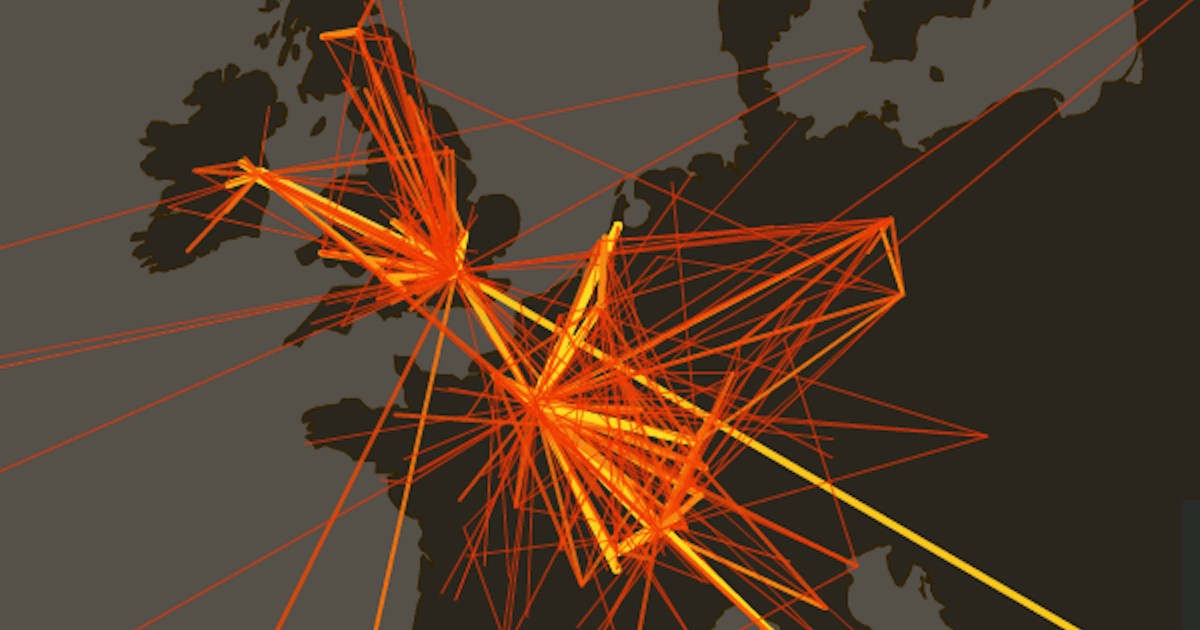 There was no internet during the Enlightenment, but something surprisingly similar did exist in the 17th and 18th centuries. This was the Republic of Letters: a virtual, global community of scientists and intellectuals who exchanged information using the fastest technology available at the time — the postal service.
There was no internet during the Enlightenment, but something surprisingly similar did exist in the 17th and 18th centuries. This was the Republic of Letters: a virtual, global community of scientists and intellectuals who exchanged information using the fastest technology available at the time — the postal service.
The clue is in the name: letters tied this self-proclaimed, transnational society together. Lots of letters. What this “metaphysical republic” lacked in speed, it made up for in volume. Take Leibniz and Voltaire, for example. In their lifetimes, these great minds wrote close to 15,000 letters each, sending them to hundreds of correspondents across all of Europe.
Continued here -
Small Business Scam Update: What Entrepreneurs Need to Know
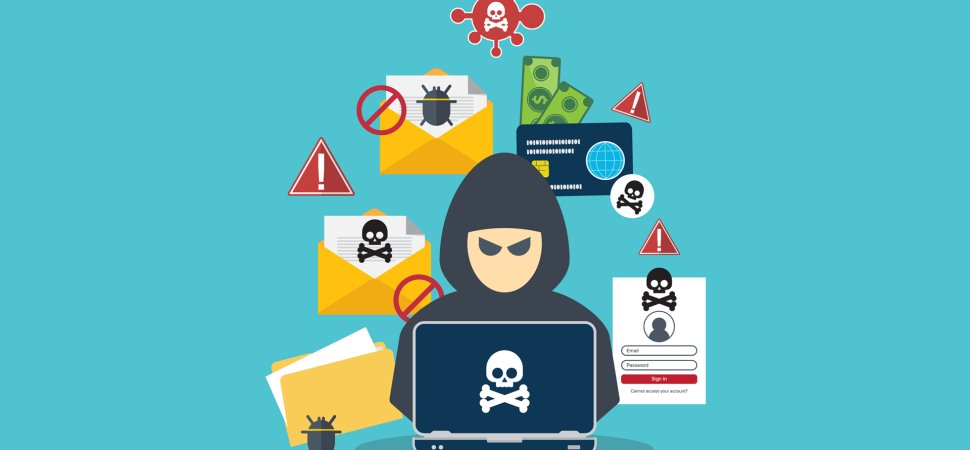 According to the Federal Trade Commission, small businesses should be on the lookout for phony invoices and unordered merchandise. Scammers send out fake invoices and hope businesses won't notice. Similarly, scammers call saying they want to confirm an order or verify an address, and send unordered merchandise they then demand money for. Small business owners are under no obligation to pay.
According to the Federal Trade Commission, small businesses should be on the lookout for phony invoices and unordered merchandise. Scammers send out fake invoices and hope businesses won't notice. Similarly, scammers call saying they want to confirm an order or verify an address, and send unordered merchandise they then demand money for. Small business owners are under no obligation to pay.
Another thing to watch: if you're starting a small business, seeking out business coaching can be a helpful endeavor. But people offering those services aren't always legitimate. They charge for services they don't actually provide and ramp up fees. For legitimate business coaching contact your local Small Business Administration regional office.
Continued here -
Powell Likely to Signal Rate Cut Unlikely Until Inflation Drops
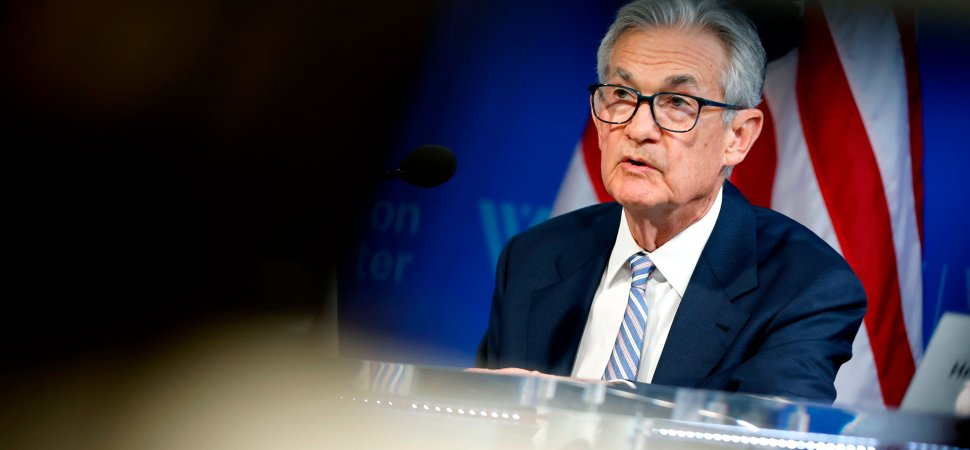 After three straight hotter-than-expected inflation reports, Federal Reserve officials have turned more cautious about the prospect of interest rate cuts this year. The big question, after they end their latest policy meeting Wednesday, will be: Will they still signal rate cuts at all this year?
After three straight hotter-than-expected inflation reports, Federal Reserve officials have turned more cautious about the prospect of interest rate cuts this year. The big question, after they end their latest policy meeting Wednesday, will be: Will they still signal rate cuts at all this year?
Wall Street traders now envision just a single rate cut this year to the Fed's benchmark rate, now at a 23-year high of 5.3 percent after 11 hikes that ended last July. Traders have sharply downgraded their expectations since 2024 began, when they had expected up to six rate cuts.
Continued here -
Tech Powerhouses Reap Gains From AI Cloud Computing Boom
 Three of the Wall Street's heavyweight technology firms have reported better-than-expected sales at their cloud computing units in recent days, as interest in artificial intelligence drives a rebound in spending by corporate customers.
Three of the Wall Street's heavyweight technology firms have reported better-than-expected sales at their cloud computing units in recent days, as interest in artificial intelligence drives a rebound in spending by corporate customers.
Growth in the $270 billion cloud infrastructure market, a cash engine for Amazon.com, Microsoft and Alphabet, gives the clearest sign yet that AI investment is bearing fruit after investors drove those stocks to record highs, thanks to optimism about the emerging technology.
Continued here -
Most Americans View TikTok as a Chinese Influence Tool, Poll Shows
 A majority of Americans believe that China uses TikTok to shape U.S. public opinion, according to a Reuters/Ipsos poll conducted as Washington moves closer to potentially banning the Chinese-owned short-video app.
A majority of Americans believe that China uses TikTok to shape U.S. public opinion, according to a Reuters/Ipsos poll conducted as Washington moves closer to potentially banning the Chinese-owned short-video app.
Some 58 percent of respondents to the two-day poll, which closed on Tuesday, agreed with a statement that the Chinese government uses TikTok, which is owned by China's ByteDance, to "influence American public opinion." Some 13 percent disagreed, and the rest were unsure or didn't answer the question. Republicans were more likely than Democrats to see China as using the app to affect U.S. opinions.
Continued here -
Google and Apple Built Tech Empires--Now the Antitrust Laws That Helped Them Pose a Threat
 The U.S. Justice Department's double-barreled antitrust attack on Google's dominant search and Apple's trendsetting iPhone is reviving memories of the epic battle that hobbled Microsoft before it roared back to yet again become the world's most valuable company.
The U.S. Justice Department's double-barreled antitrust attack on Google's dominant search and Apple's trendsetting iPhone is reviving memories of the epic battle that hobbled Microsoft before it roared back to yet again become the world's most valuable company.
The parallels to the Justice Department's landmark antitrust case in 1998 could provide a window into the potential breakthroughs that could be unleashed if regulators succeed in their attempts to crack down on Google and Apple.
Continued here -
Apple Anticipates iPhone Sales Drop Before AI Gets Into New Models
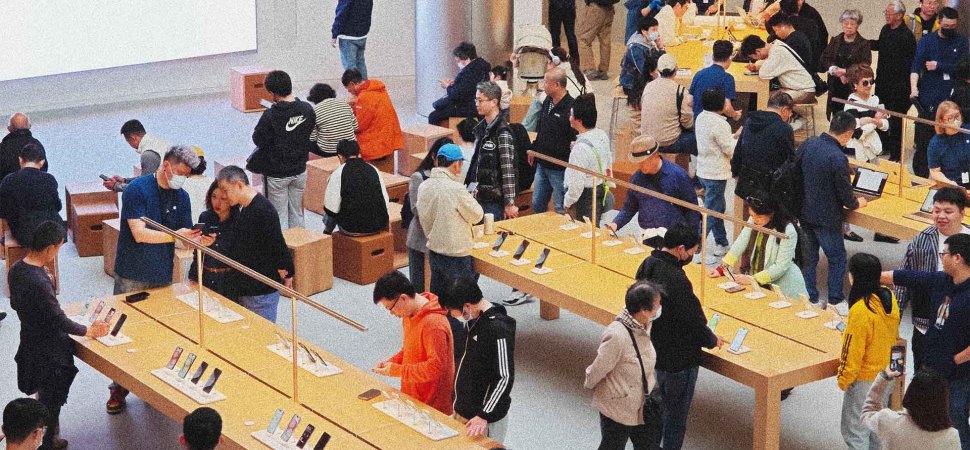 Apple's plan to add generative AI to its iPhones and revive sagging sales in the crucial Chinese market will be in focus on Thursday, when the tech giant is expected to report its biggest quarterly revenue decline in more than a year.
Apple's plan to add generative AI to its iPhones and revive sagging sales in the crucial Chinese market will be in focus on Thursday, when the tech giant is expected to report its biggest quarterly revenue decline in more than a year.
Long considered a must-own stock on Wall Street, Apple shares have underperformed other Big Tech companies in recent months, falling more than 10 percent year-to-date as fears mount about its slow rollout of AI services and as a resurgent Huawei takes market share in China.
Continued here
Thursday 2nd May 2024
Top stories this week